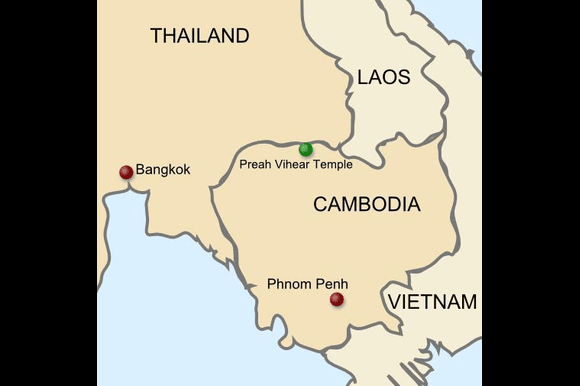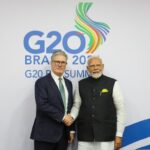At least 12 people have been killed in clashes between Thai and Cambodian forces along their disputed border, according to Thai officials, marking a significant escalation in a long-running conflict that has deep historical roots.
The Thai army reported that most of the victims were civilians from the provinces of Surin, Ubon Ratchathani, and Srisaket, with the death toll including one soldier and 11 civilians — among them an eight-year-old and a 15-year-old. Dozens more were wounded. Cambodian authorities have yet to confirm their own casualty figures.
The hostilities began early Thursday, with both sides accusing each other of initiating the fighting. According to Thailand, the confrontation was sparked when Cambodia deployed drones to surveil Thai military positions near the contested frontier. Cambodia, however, claims that Thai troops violated an existing agreement by moving into an area near a Khmer-Hindu temple — a site that has been at the center of tensions between the two countries for more than a century.
The situation quickly escalated into full-blown combat. Thailand accused Cambodia of launching rocket attacks, prompting the Thai military to retaliate with airstrikes on Cambodian targets. In response to the intensifying conflict, Thailand has shut its border with Cambodia, while Phnom Penh has downgraded diplomatic ties, accusing Thailand of using “excessive force.”
Authorities in both nations have ordered civilians to evacuate border areas. Thai officials said 40,000 people had been moved to safer locations. “[The fighting] is really serious. We’re in the middle of evacuating,” said Sutian Phiwchan, a resident of Ban Dan district in Thailand’s Buriram province, near the Cambodian border, speaking to the BBC.
This latest flare-up is rooted in a territorial dispute that dates back to the colonial era, when the border between Thailand and Cambodia was drawn following French occupation of Cambodia. Tensions turned hostile in 2008 after Cambodia sought to register an 11th-century temple located in the contested area as a UNESCO World Heritage Site. The move was met with fierce opposition from Thailand, leading to intermittent clashes that have claimed both military and civilian lives over the years.
The situation has steadily deteriorated since May, when a Cambodian soldier was killed in a skirmish along the border, plunging bilateral relations to their lowest point in over a decade. In the months that followed, both governments enacted retaliatory border measures. Cambodia banned key imports from Thailand, including fruit and vegetables, as well as electricity and internet services. Troop reinforcements have since been deployed by both sides along the frontier.
Thailand’s acting Prime Minister Phumtham Wechayachai acknowledged the sensitivity of the dispute, stressing that it must be handled carefully and in accordance with international law. His Cambodian counterpart, Prime Minister Hun Manet, echoed a desire for a peaceful resolution, but added that Cambodia “has no choice” but to “respond with armed force against armed aggression.”
Although the recent exchange of fire appears to have subsided for now, the potential for renewed conflict remains high. Both governments are facing domestic political uncertainty, limiting their capacity to de-escalate the crisis.
In Cambodia, Prime Minister Hun Manet — the son of former longtime leader Hun Sen — has yet to establish full political authority. Meanwhile, Hun Sen remains active behind the scenes and appears willing to escalate the border conflict to bolster his nationalist image.
In Thailand, the fragile ruling coalition is backed by former Prime Minister Thaksin Shinawatra, who once had close personal ties with Hun Sen and his family. Those relations have soured. Thaksin now reportedly feels betrayed after Hun Sen leaked a private conversation between them, which led to the suspension of Thaksin’s daughter, Paetongtarn Shinawatra, from her role as prime minister.
The political dynamics on both sides suggest that, while a large-scale war remains unlikely, the path toward de-escalation is uncertain. With weak leadership and heightened nationalist rhetoric, the risk of further violence along the Thai-Cambodian border remains dangerously high.






